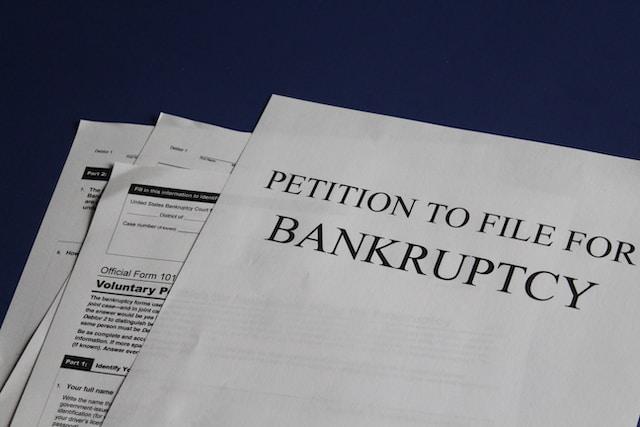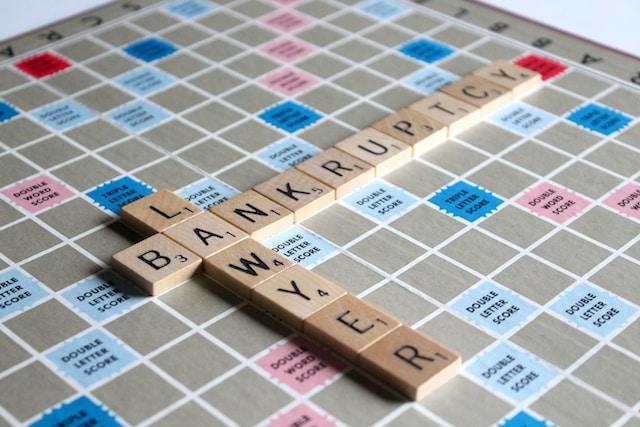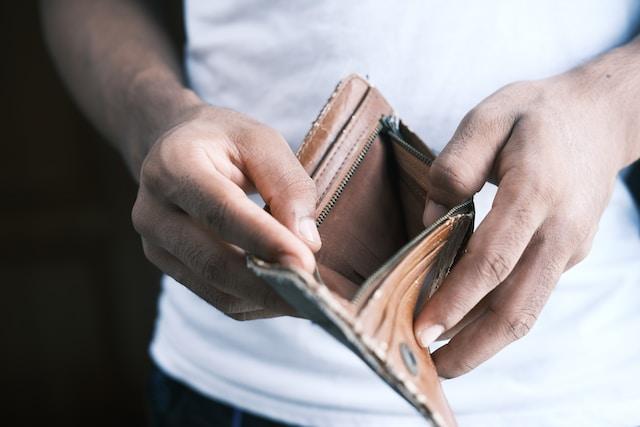Can AES Loans be Charged Off During Bankruptcy?
Our product recommendations are made independently, but we may earn affiliate commissions if you use a link on this page.
For some people, taking out student loans is the only way they can attend college if it is their dream. However, the majority of people who take these loans have trouble paying them back even after they start their careers.
When individuals feel overwhelmed with debt, they may find themselves in desperate situations where bankruptcy seems like the only way out. However, what most people do not realize is that they may not be able to get rid of their student loan debt in this way.
Are you curious about whether or not your AES loans can be charged off if you file for bankruptcy? Keep reading to learn more.

What are AES Loans?
AES or American Education Services is a student loan service provider that has secured funds for many people, allowing them to attend college. While the AES is not the lender of these funds, they are deemed as the guarantor of the loan.
What this means is that AES searches for and finds funding for those who need it to attend college. Once the loan is secured, AES, as the guarantor, agrees to pay back the loan to the financial institution, which means the student must pay AES back.
The type of loans AES provides is the FFEL, or Federal Family Education Loans, which can include both private and public student loans. The most common of these loans are the Federal Stafford Loans, both subsidized and unsubsidized.
It is important to note that currently, the AES is no longer offering FFEL types of loans and stopped doing so in 2010. However, many individuals still have loans outstanding and are in various stages of repayment.
Can AES Loans be Charged Off During Bankruptcy?
During a bankruptcy hearing, the court will typically ask for various evidence concerning the type of debt that is owed by the individual in question. In addition, they may also ask for proof of income from the individual who is filing for bankruptcy.
All of this information is then used to determine whether or not they meet the burden of proof to have their debt discharged. Depending on the type of bankruptcy you file, you may be liable for some or all of the debt you still owe.
In most cases, however, bankruptcy results in wiping out any debt that is owed by the individual to creditors. The exception to this charge off of debt, however, is student loans, which are often not discharged during bankruptcy.
There has been much debate as to whether or not student loans are or should be discharged when an individual files for bankruptcy. While some circumstances could qualify for this type of discharge of debt, most will not qualify.
It is also important to note that if you have started bankruptcy proceedings, AES is required to put a pause on your repayment. This means that you cannot be obligated to repay your loan during your bankruptcy proceedings.
Once the court has heard a bankruptcy case, they typically will determine what type of debt can be discharged during the bankruptcy. In most cases, however, student loans, including AES loans are not included in the charged-off debt.

In What Circumstances Can AES Loans be Discharged During Bankruptcy?
While there are limitations to what type of debt can be discharged during a bankruptcy proceeding, it is important to understand the rights and other options available. Under standard bankruptcy laws, including Chapter 7 and Chapter 13 bankruptcies, student loans are typically not covered.
There are, however, certain circumstances that may apply to allow this type of debt to be considered. Are you wondering how you can have your AES loans discharged during your bankruptcy? Keep reading to find out.
Undue Hardship
In more recent years, it has been determined that there are some cases where AES and other student loans may need further consideration for discharge during a bankruptcy case. Because of this, newer guidelines have provided a way for some individuals to attempt to have their loans charged off.
Keep in mind, however, that this type of discharge of AES loans is a rare occurrence and is only granted to those who can prove undue hardship. This means that on rare occasions, a bankruptcy court can rule that an individual’s AES loan can be discharged if they can prove that paying it back will be detrimental to them.
For a bankruptcy court to determine whether or not an individual’s AES loans can be discharged, they must determine the following:
- Can the individual maintain a standard of living that is deemed at least minimal?
- Will the hardship remain for a significant period during the repayment period?
- Has the individual attempted to repay the AES loan before filing for bankruptcy?
For those individuals who seek a way to have their AES loans discharged, certain steps must be followed. These steps are somewhat extensive and require the individual to provide quite a bit of information before it is considered.
The guidance in this type of discharge of debt states that if it can be determined that an individual’s student loan repayment will cause undue hardship, then it can be charged off. Proving this type of hardship can be difficult and can take some time, even when you are working with an attorney.
Here are the steps you are required to take if you are attempting to have your AES loans discharged during a bankruptcy case:
- File for an adversary proceeding with the court
- Provide documentation to the court and other entities that show your current income, debt, and other expenses, and more
- Complete attestation forms which are used to determine the level of hardship an individual has
- Wait for the final judgment from the courts
Overall, the process of attempting to have your AES loans charged off during bankruptcy can be long and arduous. However, if you truly have a financial hardship, you should take the time to walk through the steps.

What Happens if AES Loans are not Charged Off During Bankruptcy?
In many cases, during the standard bankruptcy proceedings, most of the debt that is owed by an individual can be determined to be eligible for discharge. In most cases, however, AES loans are not a part of the discharge of debt in these circumstances.
If it is determined that your AES loans are not eligible for charge-off during the bankruptcy proceedings, it is important to understand that you have other options available. While most of these options are available through AES, you will need to know what your options are.
File an Adversary Proceeding
The first choice you may have if your AES loans were not charged off during the standard bankruptcy proceedings, you may still have options available. If you believe that the AES loans will cause undue hardship, you may be able to have them discharged anyway.
It is important to keep in mind that you will need to follow the previously mentioned steps to file for this type of hardship, however, it may be the only way to get out of paying off your AES loans. If you feel that paying back any part of your AES loans could cause you undue hardship, then you have the right to attempt to have them discharged through this process.
Repayment Options
Another option that is available if it is determined that your AES loans are not eligible for a discharge is to agree with the loan servicing company. In many cases, they have options that are available to help you get on track with your repayment.
Many loan servicing companies such as AES, have options that are available for those who owe money. The available options can help ease the burden of having to come up with a way to pay back the loans you took out in the first place.
Some of the options available are either a slower or lower payback schedule that may allow you to recover from the hardship you may be suffering. In some cases, AES will work with you to find the best plan for your situation.
There are some cases where you may also be able to postpone your payments for a certain amount of time, based on your circumstances. It is important to note that if this type of help is provided, you will likely still be responsible for interest payments during the postponement.
Other options that may be available are either consolidation of your student loan debt or other specific programs that they offer. To determine whether or not you qualify for other options, it is recommended that you contact AES.
Having a massive amount of student loan debt can be overwhelming, especially if you have financial difficulties in paying them back. It is important to understand that while your AES loans can be discharged under some circumstances, this is not the case for every student.
Reference Legal Explanations
If you use any of the definitions, information, or data presented on Legal Explanations, please copy the link or reference below to properly credit us as the reference source. Thank you!
-
<a href="https://legal-explanations.com/blog/can-aes-loans-be-charged-off-during-bankruptcy/">Can AES Loans be Charged Off During Bankruptcy?</a>
-
"Can AES Loans be Charged Off During Bankruptcy?". Legal Explanations. Accessed on December 13, 2024. https://legal-explanations.com/blog/can-aes-loans-be-charged-off-during-bankruptcy/.
-
"Can AES Loans be Charged Off During Bankruptcy?". Legal Explanations, https://legal-explanations.com/blog/can-aes-loans-be-charged-off-during-bankruptcy/. Accessed 13 December, 2024
-
Can AES Loans be Charged Off During Bankruptcy?. Legal Explanations. Retrieved from https://legal-explanations.com/blog/can-aes-loans-be-charged-off-during-bankruptcy/.